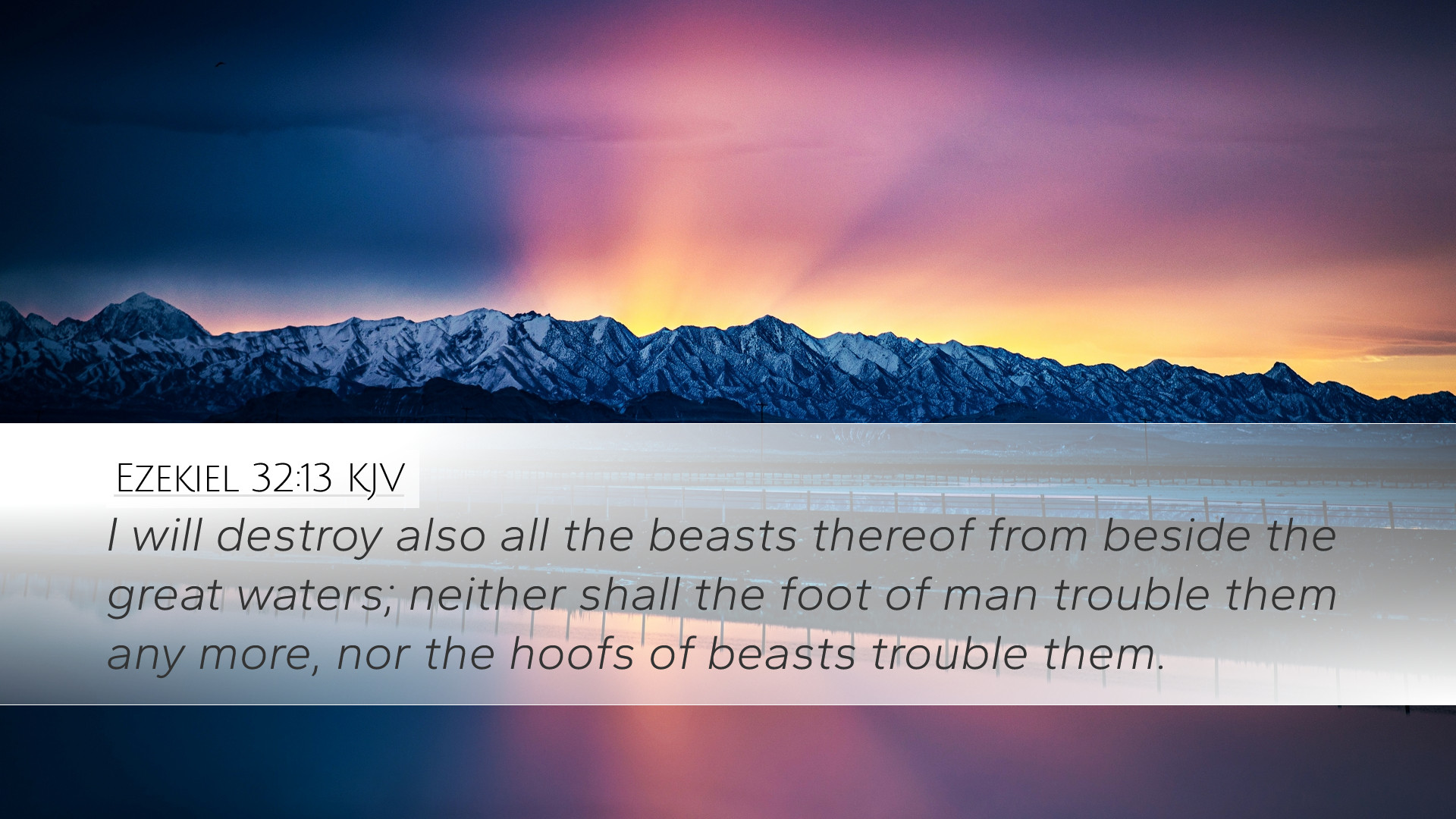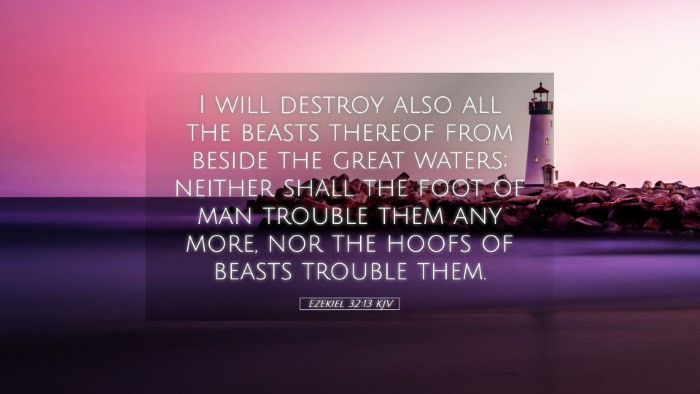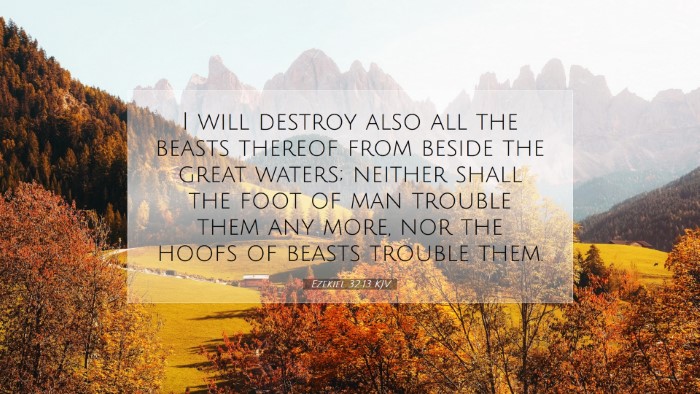Ezekiel 32:13 - Commentary
Verse Context: Ezekiel 32:13 states, "I will destroy also all the beasts thereof from beside the great waters; neither shall the foot of man trouble them any more, nor the hoofs of beasts trouble them." This verse is a part of the larger prophetic message from Ezekiel regarding the ruin of Egypt and its significance in the history of Israel and its neighbors.
Understanding the Passage
This passage deals with divine judgment and illustrates God's sovereignty over nations. The focus on animals and the land indicates loss not only of population but also of prosperity and fertility, symbolizing utter desolation.
Insights from Public Domain Commentaries
Matthew Henry's Commentary
Matthew Henry emphasizes the destructiveness of God's judgment, noting that the removal of both man and beast serves to highlight the complete desolation of a land. He points out that the "great waters" mentioned in the text are likely the Nile, symbolizing the life-giving force that will now dry up due to divine judgment.
Henry reflects on the significance of "the foot of man" and "the hoofs of beasts," pointing out that the absence of human and animal activity indicates a total cessation of life and industry. This is a vivid picture of God’s ability to bring low the proud and powerful, which in this case refers to Egypt, a once-thriving nation.
Albert Barnes' Notes on the Bible
Barnes interprets this verse as a prophetic declaration of desolation following the fall of Pharaoh and Egypt. He describes how the great waters of Egypt, once abundant with life, would now be devoid of all living beings. This signifies both physical desolation and the spiritual implications of turning away from God.
Moreover, Barnes underscores the metaphorical usage of "beasts" to represent immense power and influence that will also be eradicated. He highlights that the judgment is meant to serve as a warning to other nations about the consequences of pride and rebellion against God.
Adam Clarke's Commentary
Clarke approaches this verse with an emphasis on God's judgment as a pivotal event in biblical prophecy. He notes that the reference to the beasts and waters reflects not just physical destruction but also the withdrawal of God's favor from Egypt. This absence leads to a metaphorical wasteland where even the natural order—represented by both man and beast—is disrupted.
Clarke provides an astute observation that the "great waters" denote both abundance and prosperity, and God's decree signals the transition from abundance to barrenness. The totality of judgment prophesied here serves as a reminder of the serious nature of divine retribution when nations forsake the principles laid out by God.
Theological Implications
From a theological perspective, Ezekiel 32:13 challenges believers and scholars to reflect on the nature of divine judgment and the transient nature of human power. As noted in the various commentaries, God's sovereignty reinforces the truth that no nation or leader can stand against His will.
The visions in this chapter urge a commitment to righteousness and highlight the consequences of idolatry, pride, and oppression. For pastors, this serves as a poignant reminder to guide congregations away from the allure of worldly powers and towards a steadfast relationship with God.
Applications for Today
For modern believers, the message of complete desolation wrought by divine judgment can serve as a powerful call to introspection.
- Awareness of Consequences: Just as Egypt faced destruction, contemporary society must recognize the potential consequences of turning away from divine principles.
- Dependence on God's Provision: The symbolism of "great waters" invites self-examination regarding where we derive our security and sustenance. Are we depending on God or the fleeting conveniences of this world?
- Commitment to Justice and Righteousness: The demise of oppressive leaders and nations invites us to advocate for justice and uphold righteousness in our communities.
Conclusion
Ezekiel 32:13 serves not only as a historical account of God's judgment upon Egypt but also as a timeless reminder of His sovereignty and the ultimate futility of human pride. The combined insights from Matthew Henry, Albert Barnes, and Adam Clarke enrich our understanding, emphasizing the rich theological ramifications of this passage. For pastors, students, and scholars, this verse is a call to embrace humility, seek righteousness, and remain vigilant against the pride that invites judgment.


